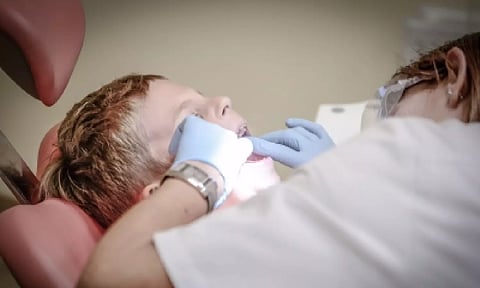

LONDON: Early detection of your risk of chronic conditions like heart diseases, diabetes, obesity and others may be as easy as visiting your dentist, according to new research.
The researchers said that dental professionals can make a marked and positive difference to public health by being trained to spot some of the key markers of chronic disease.
"A health check at the dentist could provide reassurance for many patients, and a wake-up call for others to become healthier,” said lead author Janine Doughty from the Royal Liverpool University Dental Hospital.
"We have someone already sitting in the chair, who visits the dentist every six to 12 months, yet who may not have seen a GP for years. It is simple to give them a few minutes of health checks at the same time," Doughty added.
The study, published in the British Dental Journal, saw two general dental practices implement a suite of health screens for those attending regular dental check-ups.
It meant that as well as examining their oral health, patients were offered checks for their blood pressure, blood glucose, cholesterol, body mass index (BMI) and waist-to-height ratio.
Of more than 500 patients seen, 78 per cent had blood pressure values above normal range, well over half (55.8 per cent) were outside of the healthy range for BMI, and almost 40 per cent had an above average waist-to-height ratio.
The tests also found just under 17 per cent of patients exhibited out-of-range cholesterol results while high blood glucose values were observed for just over 3 per cent of those seen.
All of the patients whose results were outside of the normal range were verbally advised to make an appointment with their GP for follow-up care.
"This study shows there are enormous opportunities for dental teams to support their patients and work more closely with our medical and health care colleagues to benefit public health," said Robert Witton, from the Peninsula Dental School at the University of Plymouth, UK.